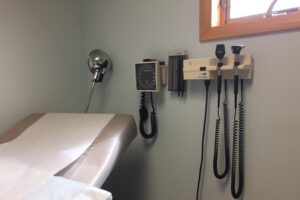Brian Cross of The Windsor Star has been providing some very important information on the opioid epidemic. In particular, he has written about the difficult subject of parents whose children are addicted to opioids (updated Jan 29, 2018 Windsor Star “Not My Kid Forum… offers help to parents worried about opioids”).
To view the original article, see https://windsorstar.com/news/local-news/not-my-kid-forum-on-feb-1-offers-help-to-parents-worried-about-opioids.
Tell-tale signs for parents who suspect opioid use in their children:
- Increased lethargy and somnolence; lack of energy;
- Decreased interest in previous activities;
- Excessive sleeping;
- Socializing with new friends; loss of contact with previous friends;
- Bedroom doors closed and locked most of the time;
- Increased days of absence from school; truancy; drop in grades; parents should check with school with respect to attendance and grades;
- Periods of agitation, irritability, excessive sweating, fits of anger, vomiting – all signs of withdrawal
When opioid-intoxicated, look for signs of:
- Slurring of speech
- Dry mouth
- Stumbling
- Incoherence
- Pinpoint pupils (pupils greatly reduced in size)
- Nodding off while sitting or even while standing
If you suspect intravenous opioid use, look for:
- Track marks (especially but not exclusively) on the arms;
- Bruising;
- Swollen hands and arms;
- Fever;
- Skin infections;
If you suspect snorting of opioids, look for:
- Inflamed nostrils;
- Chronic nasal congestion;
- Recurrent “flu”
If you suspect smoking/inhaling of opioids, look for:
- Chronic cough;
- Recurrent upper respiratory tract infections and lung infections/pneumonias;
- Fever
Other things to look for:
- Is money mysteriously disappearing at home?
- Are valuable items or electronic equipment missing?
The above (and what is to follow) are not meant to be comprehensive lists. I have gleaned these insights from years of attending Recovery meetings and listening to the stories of addicts, as well as their friends and relatives. This article is a general compilation of lived experiences and is meant to provide guideline advice only.
Suggestions of Approach
- In confronting your son or daughter, try not to display anger, and try not to be dictatorial or judgmental – this will not work and will more likely result in defensive reactions.
- Tell them why you think they may have a problem. Tell them what you have observed. Be objective.
- If they deny drug use, leave the door open. If your concerns persist, try again in a couple of days . This time you may want to enlist the help of other family members or friends who (like you) have noticed the same signs of drug use. This meeting involving family members and/or friends gently confronting the addict is sometimes called an “intervention”. A recovering addict could also be included in the intervention, if at all possible. This could be a very valuable asset.
- If and when an admission of opioid use is made, for the purposes of this blog, we will assume henceforth that the opioid user is very ill, has the disease of opioid dependency and is an addicted patient needing urgent treatment.
- The substance user needs to be assured that you (the parent) still loves him or her and that everyone in the room only wants what is best. The sick family member needs to be told clearly that he/she is very sick and that the many risks of the disease include death. A few articles describing the opioid epidemic should be available. At this point, the input of a recovering addict is invaluable.
- Rehab should be strongly recommended; if agreement is not reached, leave the door open. Early follow-up (i.e. 1-2 days later) with all the same intervention players is essential.
- If and when an agreement with respect to rehab is reached with the sick family member, an urgent visit to the family doctor should be made for the purposes of arranging an ASAP rehab referral.
- While waiting for admission to rehab, AT LEAST ONE DAILY meeting, accompanied by a recovering addict, is essential.
- While waiting for admission to rehab, it is best to discontinue school; a serious illness such as addiction mandates time off school; the latter may have become a potentially toxic environment by this time.
- The environment needs to be radically altered with the help of meetings, people in Recovery, and avoidance of all identifiable toxic contacts or environments.
- Cell phones and phone numbers may need to be changed.
- Until admission to rehab occurs, the daily schedule of the addict needs to be regimented and every minute has to be accounted for. The addict must never be left alone.
- In an ideal world, admission to rehab would occur almost immediately. Unfortunately, the real world does not allow this to happen in many instances. The above guidelines emphasize the general principle that the untreated addict is absolutely unreliable and at extremely high risk in the early stages. Therefore, while waiting for rehab admission, the principle of a daily schedule and nearly constant contact with non- or recovering addicts is ideal, even if not always feasible.
This blog has only dealt with general guidelines LEADING UP TO admission to a rehab center. The real work of Recovery will take place in the following years. That is another topic.




Leave a Reply